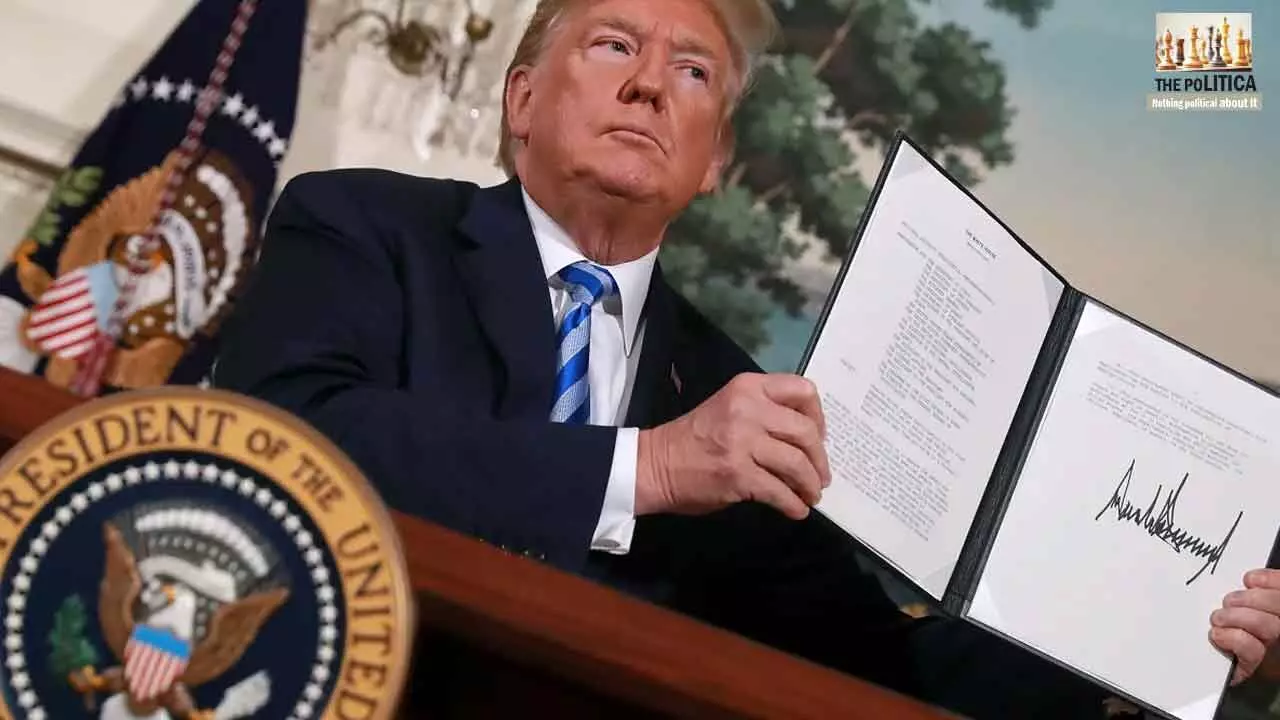Defanging Usaid: A Step Toward Stronger Indo-US Ties And Global Stability
Over past seven decades, most nations, including Bharat, have established their own foreign aid agencies or programs, administered directly by their govts
Defanging Usaid: A Step Toward Stronger Indo-US Ties And Global Stability

Reining in Usaid will mark a major shift in US foreign policy, fostering global stability. For Bharat, it strengthens internal security and paves the way for much-needed trust between the two nations, ensuring a partnership based on sovereignty, mutual respect, and strategic cooperation
Defanging USAID stands out as one of the most significant geopolitical moves by President Trump and his administration, drawing global attention and even unexpected support from Russia, its arch-rival.
With an annual budget exceeding $40 billion, the agency has been accused of using its funds to "undermine" US interests. Marco Rubio, the US Secretary of State (SecState), in an interview with Fox News, underscored how the agency damaged US relations by "supporting programs that upset the host government"—even as Washington sought broader cooperation with these nations.
Bharat has long expressed reservations about USAID-funded programs linked to NGOs, civil society groups, and media organisations, perceiving them as interference in domestic affairs. New Delhi has been particularly wary of USAID’s involvement in projects related to religious freedom, human rights, and democracy promotion, fearing they could be used as cover for political activism. The regime change attempt in Bangladesh is the latest example of how the agency allegedly sought to destabilize a key regional power. Since 2014, the Modi government has tightened regulations on foreign funding through the Foreign Contribution (Regulation) Act (FCRA), imposing restrictions on several organisations.
Origins of USAID and the Role of Foreign Aid
Foreign aid programs have historically been driven by a mix of humanitarian concerns, economic interests, and political strategy. While forms of aid existed prior, the post-World War II era saw a significant rise in large-scale, government-led assistance programs. The economic and infrastructural devastation caused by World War II, coupled with the Cold War—when the US and the Soviet Union used aid as a tool to gain allies and influence—led to the creation of agencies like USAID.
The United States Agency for International Development (USAID) was established by President John F Kennedy in 1961. Addressing the agency's mission directors on June 8, 1962, JFK described USAID as "a very powerful source of strength" for the US, intended "to exert influence for the maintenance of freedom."
Over the past seven decades, most nations, including Bharat, have established their own foreign aid agencies or programs, typically administered directly by their governments. These initiatives serve the dual purpose of advancing economic interests and geopolitical influence while delivering humanitarian assistance. In theory, USAID’s mission included disaster relief and poverty alleviation to promote economic prosperity. However, unlike Bharat—whose approach focuses more on self-reliance, education, technology, and cultural exchange—USAID’s mandate also included supporting "democratic reforms" and advancing "US national security interests." In practice, many nations, including Bharat, have sought to exert influence over smaller, underdeveloped regional partners through aid programs.
Where Did USAID Go Wrong?
USAID was originally created to provide humanitarian assistance worldwide, operating under the policy direction of the Secretary of State, the National Security Council, the White House, and other U.S. government bodies. However, over time, it "evolved into an agency that believes they're not even a U.S. government agency," claimed Marco Rubio in an interview with Fox News.
Headquartered in Washington DC, USAID operates in over 120 countries, with missions in more than 60 nations and regional offices, employing over 10,000 people. Calling it the "master of the globe," Rubio added, "One of the most common complaints" from U.S. embassies, State Department officials, and ambassadors is that "USAID not only refuses to cooperate but actively undermines U.S. diplomatic efforts in many countries."
There are numerous reports of USAID funds being funnelled to foreign elites, NGOs, and questionable projects. Highlighting USAID’s controversial activities, Trump’s Press Secretary, Caroline Levitt, pointed to "the waste and abuse that has run through USAID over the past several years," where the agency, driven by "insane priorities," spent millions advancing woke culture through Diversity, Equity, and Inclusion (DEI) initiatives. Meanwhile, Senator Joni Ernst claimed that USAID officials threatened her for questioning taxpayer-funded humanitarian aid to Ukraine.
Adding to the controversy, Elon Musk, head of the Department of Government Efficiency (DOGE), has been sharply critical of USAID. On his social media platform, X, he called the agency a "criminal organization" and declared that it was "time for it to die." He further described USAID as a "viper's nest of radical-left Marxists" and "evil," announcing plans to dismantle it.
What lies ahead?
The future of USAID remains uncertain, but with growing pressure on its global role, this presents an opportunity for the US to rebuild trust with nations like Bharat. Curbing the agency's influence has become an urgent necessity for global stability. However, whenever that happens, its implementation will mark a significant shift in American foreign policy.
(The author is Founder of My Startup TV)

